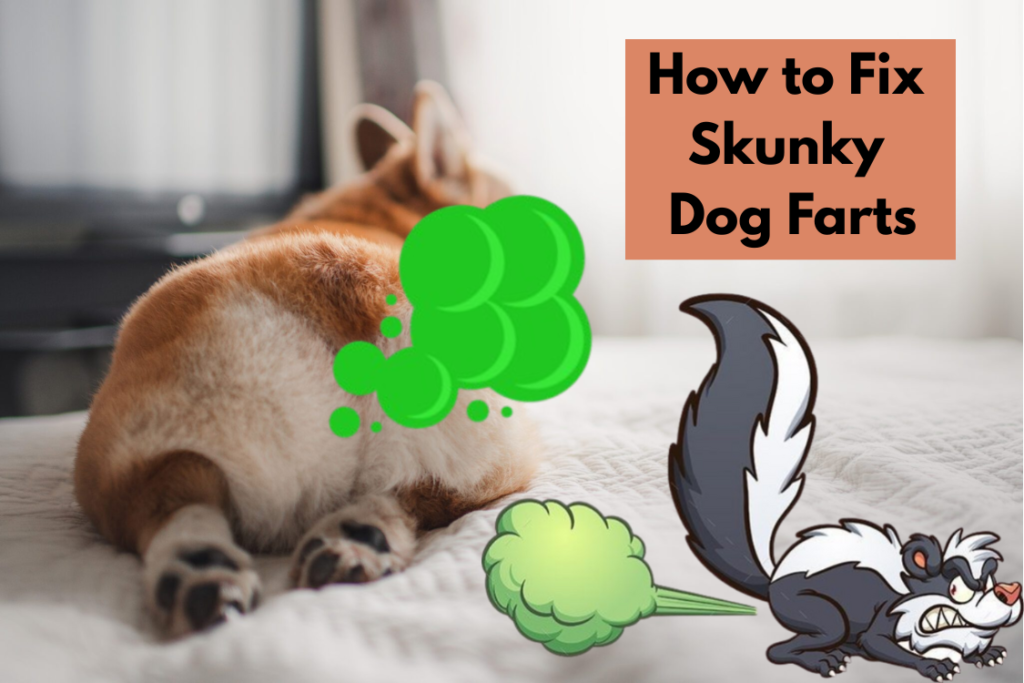Has your dog ever let out a fart that smells so bad it reminds you of a skunk’s spray? If so, you’re not alone! Skunky-smelling dog flatulence can be unpleasant, but it’s not uncommon. This unusual odor can indicate something more than just the normal doggie gas.
In this article, we’ll explore why your dog’s farts might smell like a skunk, the possible causes, and how to fix the issue.
What Causes Skunky-Smelling Farts in Dogs?

Dogs, like humans, pass gas regularly. But when their farts start to resemble the offensive, pungent odor of a skunk, it’s important to take note. The smell of your dog’s gas can be influenced by several factors :
1. Diet: What Your Dog Eats Matters
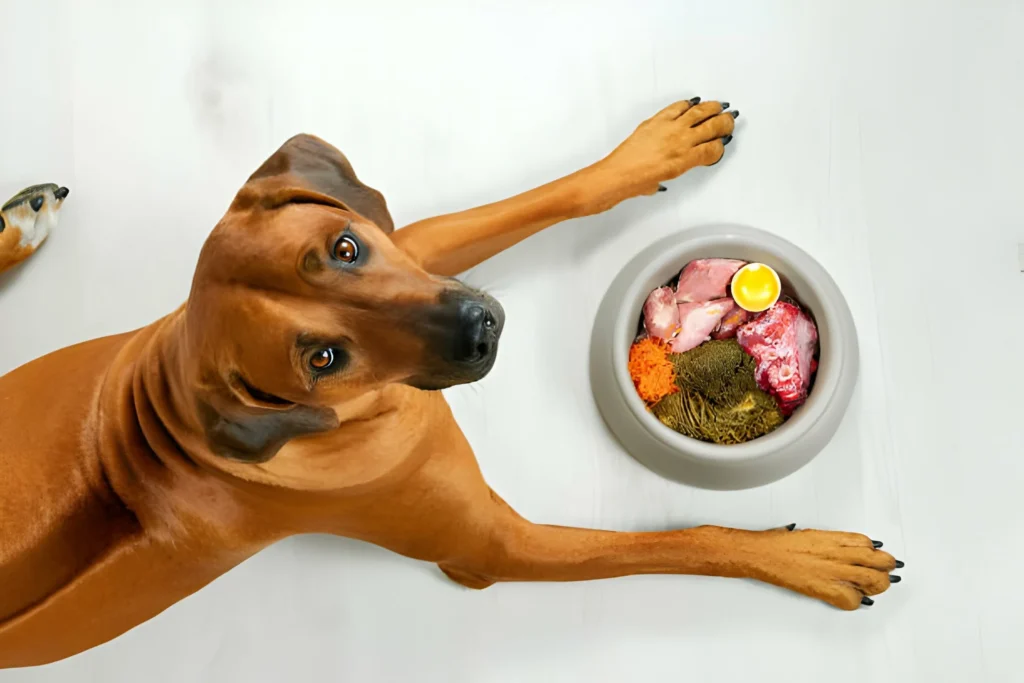
The most common cause of skunky-smelling dog farts is a poor diet or certain foods that can produce foul-smelling gas. Foods that are hard to digest or cause fermentation in the digestive system tend to produce a stronger, skunk-like odor. High-protein foods, fatty treats, and low-quality kibble often lead to more potent gas.
Foods to Watch Out For:
- Sulfur-rich foods: These include broccoli, cauliflower, cabbage, and eggs. They can cause foul-smelling gas.
- High-fat foods: Fatty foods can ferment in your dog’s stomach, leading to stinky gas.
- Dairy: Many dogs are lactose intolerant, which can result in bloating, diarrhea, and very smelly gas.
How to Fix It: Consider switching your dog to a higher-quality dog food that is easier to digest. Look for foods that are made with lean protein and avoid ingredients that are known to cause gas, such as soy, beans, or excess fat. You might also want to add a digestive enzyme supplement to help your dog digest food better.
2. Digestive Issues and Health Conditions
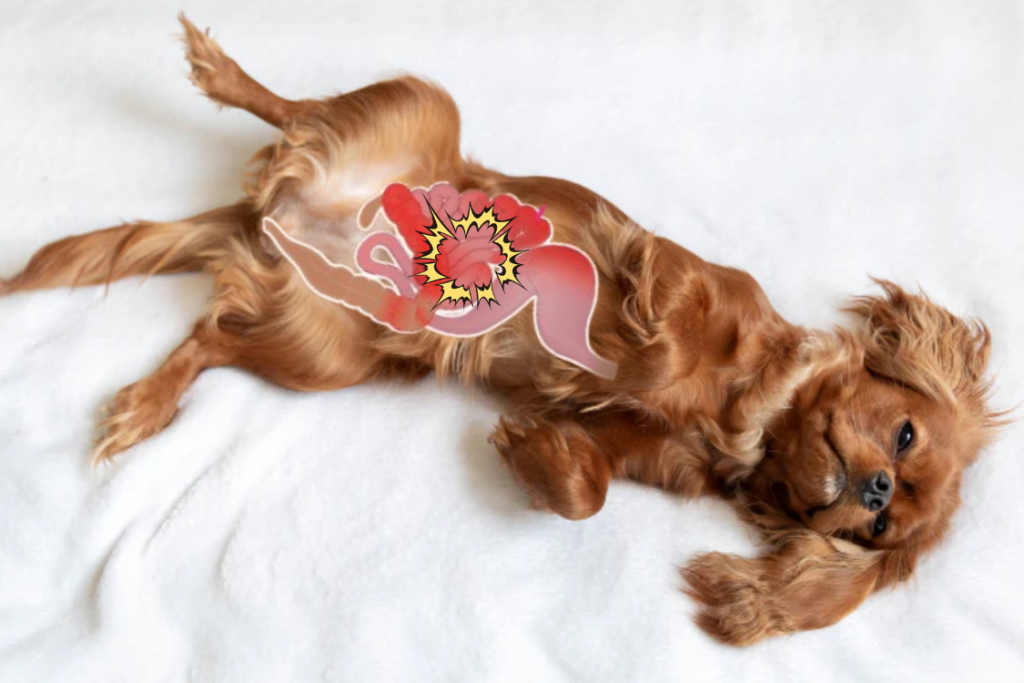
Another potential cause of skunky-smelling farts in dogs is an underlying digestive issue. If your dog’s gut isn’t functioning properly, it can result in foul-smelling gas. Conditions like gastrointestinal infections, food sensitivities, or even parasites can all contribute to unusual odors.
Common Digestive Problems in Dogs:
- Exocrine Pancreatic Insufficiency (EPI): This condition occurs when the pancreas fails to produce enough enzymes to break down food properly. It can cause a strong, foul odor in your dog’s farts.
- Gastrointestinal infections: Bacterial or viral infections can upset your dog’s digestive system, leading to excessive gas that smells bad.
- Food allergies or intolerances: If your dog is allergic to certain ingredients, like grains or dairy, it can cause digestive upset and result in smelly gas.
How to Fix It: If you suspect your dog has a digestive issue, it’s important to schedule a visit with your vet. They can diagnose conditions like EPI or infections and recommend appropriate treatment. If food allergies are suspected, your vet may suggest an grain-free diet or specific hypoallergenic foods to help.
3. Skunk Spraying: A Direct Cause?
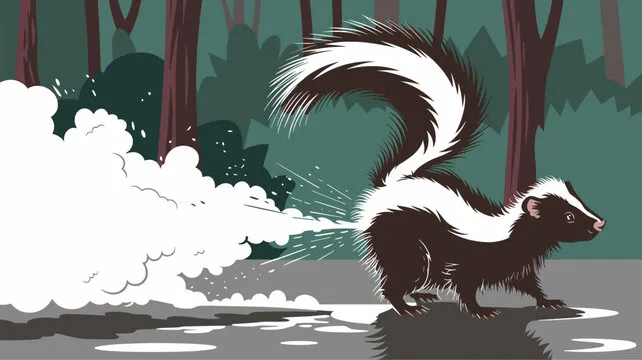
While this may sound obvious, it’s worth mentioning that if your dog has been in an area where a skunk has sprayed, the smell may not be from their digestive system at all! Sometimes, the odor can linger on your dog’s fur or skin, giving the impression that the gas itself smells like a skunk.
How to Fix It: If you think your dog has encountered a skunk, give them a good bath with a pet-safe shampoo that is designed to neutralize odors. This can help remove the skunk smell from their fur and prevent it from transferring to their gas. You may also want to check their paws and face, as skunk spray tends to stick to fur.
4. Overeating or Eating Too Quickly

If your dog is eating too much at once or swallowing food too quickly, it can lead to excessive gas production. When your dog overeats, their stomach struggles to process the food, leading to bloating and foul-smelling gas. This problem can be even worse if your dog’s diet consists of heavy, rich foods that are difficult to digest.
How to Fix It: To address this, try feeding your dog smaller, more frequent meals throughout the day. Use automatic dog feeder or slow feeder bowls to help your dog eat more slowly, reducing the amount of air they swallow while eating. This can help reduce bloating and the resulting gas. You might also want to consider online dog training program that focus on behavioral issues like eating too quickly.
5. Stress or Anxiety

Believe it or not, stress and anxiety can also contribute to your dog’s digestive issues, leading to foul-smelling gas. Stress can cause your dog’s digestive system to work inefficiently, leading to bloating, discomfort, and an increase in the production of smelly gas.
How to Fix It: If your dog’s flatulence seems linked to anxiety or stress, try to identify any potential triggers. Common stressors for dogs include changes in routine, loud noises, or unfamiliar environments. Providing a calm and stable environment for your dog can help reduce their anxiety. Additionally, you may want to talk to your vet about stress-relief options, like anxiety-reducing treats or calming pheromones.
How to Treat Skunky Smelling Farts in Dogs:
Once you’ve identified the potential cause of your dog’s skunky-smelling gas, you can take steps to treat it. Here are some remedies you can try:
1. Switch to a High-Quality Dog Food
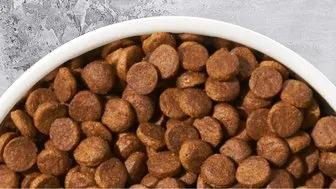
Opt for easily digestible foods made with lean protein and healthy fats. Avoid foods with fillers, by-products, or excessive fat. Choose only a well-known and top dog food brands. Transition your dog’s food gradually to avoid upsetting their stomach.
2. Add Digestive Enzymes or Probiotics
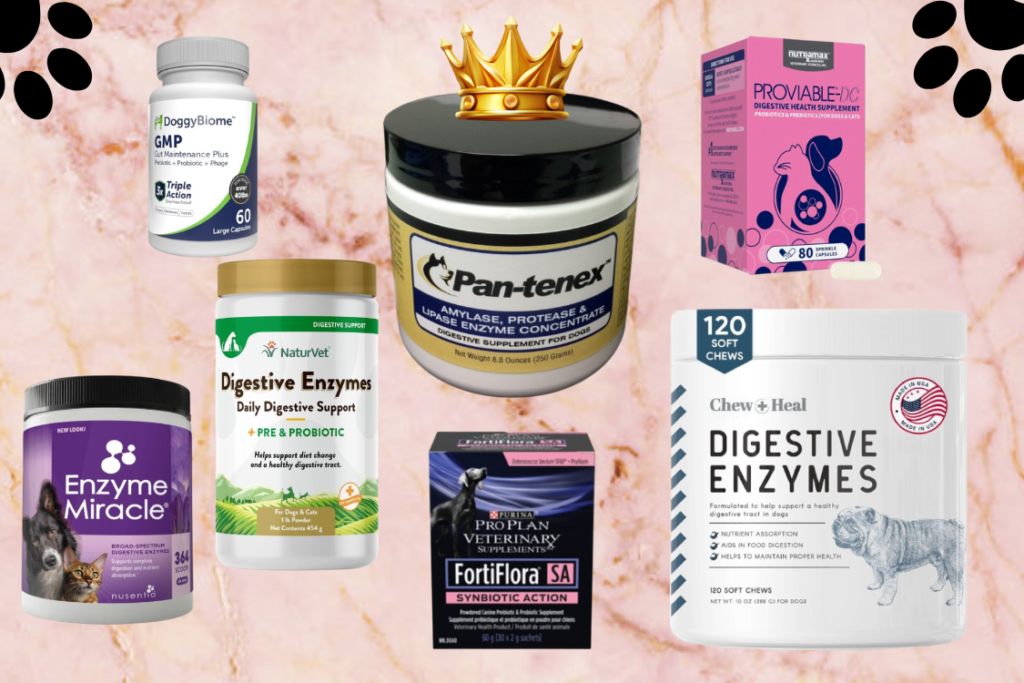
Digestive enzymes or probiotics can help improve your dog’s gut health, reducing bloating and smelly gas. Talk to your vet about which supplements are best for your dog.
3. Monitor Your Dog’s Eating Habits

If your dog eats too quickly or overeats, consider slowing them down with slow feeders. Smaller, more frequent meals can also reduce digestive issues and gas buildup.
4. Vet Check for Digestive Health Issues

If your dog’s gas is persistent or accompanied by other symptoms like diarrhea, vomiting, or weight loss, consult with your vet. They can diagnose potential digestive issues like EPI, infections, or food allergies. Pet insurance can help cover the costs of vet visits, so always check pet insurance comparisons to ensure you’re getting the best coverage for your dog’s needs.
Breathe Easy – Solutions Are Just a Step Away

Skunky-smelling farts in dogs can be a sign of something more than just a bad diet or a digestive issue. Whether it’s the food they’re eating, an underlying health problem, or even just the result of stress, there are many potential causes to consider. Fortunately, with the right approach—whether that’s switching their food, adding probiotics, or addressing stress—you can help reduce your dog’s gas and improve their overall health.
If the problem persists or worsens, it’s important to consult your vet to rule out any serious health concerns. After all, your dog deserves to feel good, and so do you!
For more tips on managing your dog’s gas, check out our article on Top 5 Dog Fart Remedies to Help Your Dog Stop Farting Fast.

